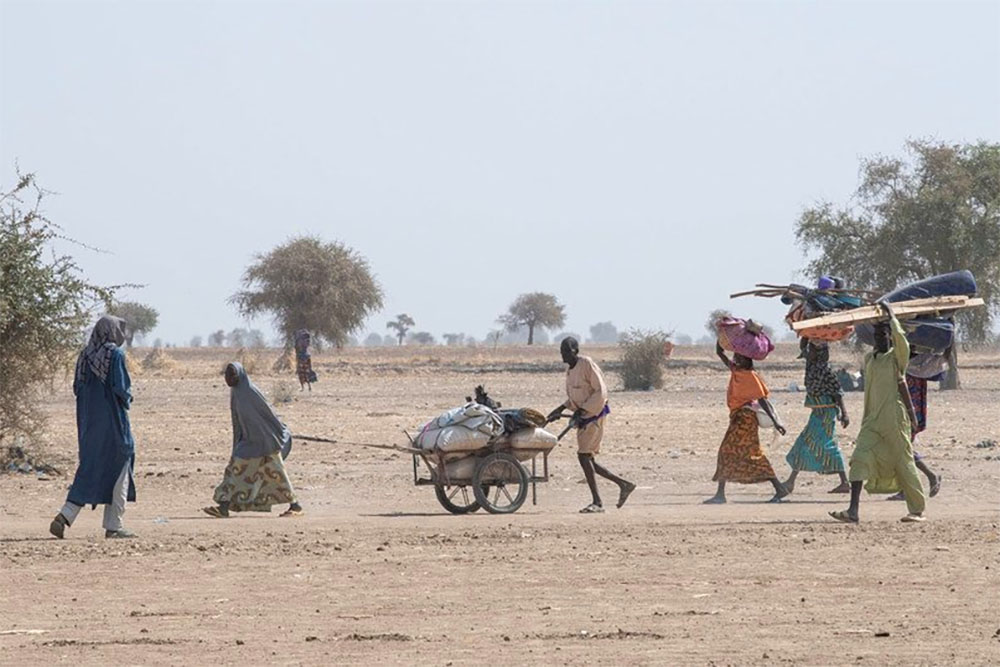For over a decade, the Boko Haram insurgency has plunged the Lake Chad Basin into a devastating security and humanitarian crisis, displacing 3.2 million people and forcing 280,000 refugees across international borders. Currently, an estimated 11.1 million people across Nigeria, Chad, Niger, and Cameroon require humanitarian assistance. Despite initial military successes against Boko Haram factions, the situation remains dire, with ongoing insecurity and escalating intra-factional conflicts. UNIDIR and the Institute for Security Studies (ISS) collaborated on a comprehensive study to examine the prospects and support for different conflict resolution tools when dealing with listed terrorist groups like Boko Haram.
Following the 2021 demise of factional leader Abubakar Shekau and the mass defections of approximately 160,000 people associated with Boko Haram, there was a renewed sense of optimism about the potential to end the insurgency. The newly released study by UNIDIR and ISS assesses the viability of various conflict resolution tools, including the often-dismissed approaches of dialogue and negotiation with listed terrorist groups like Boko Haram.
Siobhan O’Neil, head of the Managing Exits from Armed Conflict project says, “Sitting down at the negotiating table with certain types of armed groups – specifically those that are listed as terrorist or characterized as violent extremist – is usually dismissed out of hand. Yet, the preferred approaches to dealing with such groups – namely heavy handed military responses – rarely are effective at ending their violence. Dialogue and negotiation – when part of a broader strategy – have the potential to help bring about the end of armed groups and/or resolve the conflicts to which they are a party.”
Remadji Hoinathy, Senior Researcher, Central Africa and Lake Chad Basin, ISS adds, “While negotiating directly with the leadership of the various Boko Haram factions may prove challenging, key informants interviewed as part of this study overwhelmingly agreed that it is still possible to envisage negotiations with lower-ranking members. These negotiations may be all the more possible if measures are taken to guarantee their return under acceptable conditions and to address the structural and socio-cultural factors that drove them to these groups. It is therefore important to continue thinking about negotiation as an alternative approach and to give it another chance.“
Key findings of the joint report are:
- Opportunity for Dialogue and Negotiation: Despite the complex challenges, the report identifies significant opportunities for dialogue and negotiations with Boko Haram factions, particularly following recent leadership changes and mass defections. Dialogue is seen as a critical precursor to negotiations, capable of fostering trust and exploring non-violent pathways for the group’s members
- Challenges and Variability in Faction Willingness: The willingness and capacity to negotiate vary significantly between different Boko Haram factions. While some factions show openness to dialogue due to weakened positions or internal discord, others, particularly those with strong transnational ties or hardline ideologies, are less likely to engage in peace talks.
- Strategic Use of Amnesty and Defection Programs: Amnesty programs and strategic communications encouraging defections have been pivotal, providing pathways out of violence for lower-ranking members. These programs, coupled with dialogues, could strategically deplete militant ranks and gradually undermine the groups’ operational strength.
The report provides policymakers with a unique evidence base for considering a range of conflict resolution tools, suggesting that a combination of kinetic and non-kinetic measures may be necessary to comprehensively address the Boko Haram conflict. The findings reflect the complex realities and challenges of negotiating with terrorist groups and emphasize the need for a multifaceted approach to ensure lasting peace and security in the region.
Methodology
The methodology of the study involved extensive qualitative research conducted between May and June 2023 across the four countries of the Lake Chad Basin (Nigeria, Chad, Niger, and Cameroon). The research team from UNIDIR and ISS engaged in 297 key informant interviews and 35 focus group discussions with a diverse group of stakeholders. These included military personnel, members of the Civilian Joint Task Force, former associates of Boko Haram factions, government officials, local leaders, NGO staff, and community members. These discussions aimed to gather insights into the local counterterrorism strategies and the perceptions of dialogue and negotiation as tools for conflict resolution.
Download the full report here: unidir.org/MEACDialogue
